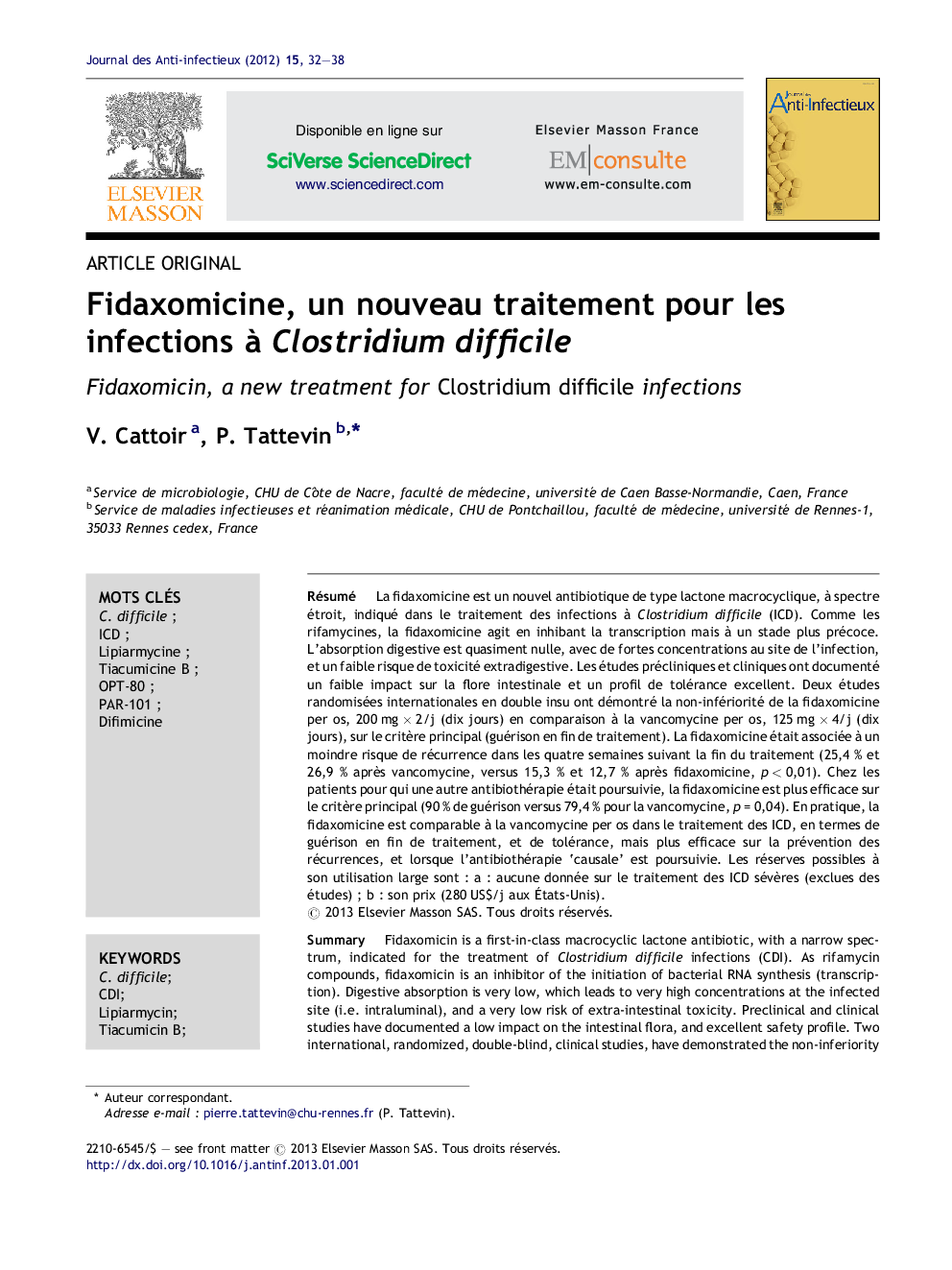| Article ID | Journal | Published Year | Pages | File Type |
|---|---|---|---|---|
| 3405423 | Journal des Anti-infectieux | 2012 | 7 Pages |
Abstract
Fidaxomicin is a first-in-class macrocyclic lactone antibiotic, with a narrow spectrum, indicated for the treatment of Clostridium difficile infections (CDI). As rifamycin compounds, fidaxomicin is an inhibitor of the initiation of bacterial RNA synthesis (transcription). Digestive absorption is very low, which leads to very high concentrations at the infected site (i.e. intraluminal), and a very low risk of extra-intestinal toxicity. Preclinical and clinical studies have documented a low impact on the intestinal flora, and excellent safety profile. Two international, randomized, double-blind, clinical studies, have demonstrated the non-inferiority of oral fidaxomicin, 200 mg Ã 2/d (10 days) in comparison to oral vancomycin, 125 mg Ã 4/d (10 days), regarding the primary criteria (cure by the end of treatment). Fidaxomicin was associated with a lower risk of recurrence within the 4 weeks following treatment discontinuation (25.4% and 26.9% after vancomycin versus 15.3% and 12.7% after fidaxomicin, P < 0.01). In patients who received concomitant antibiotics for other reasons, fidaxomicin was superior regarding the primary criteria (cure, 90% versus 79.4% for vancomycin, P = 0.04). In conclusion, fidaxomicin appears similar to vancomycin for the treatment of CDI, in terms of cure by the end of treatment and tolerability, but is associated with a lower risk of recurrences, and when the 'causal' antibiotic is maintained. The limitations for a broad use of fidaxomicin include: a: no robust data available regarding its use in severe CDI (exclusion criteria in the pivotal studies); b: the cost (280 US$/day in the US).
Keywords
Related Topics
Health Sciences
Medicine and Dentistry
Infectious Diseases
Authors
V. Cattoir, P. Tattevin,
